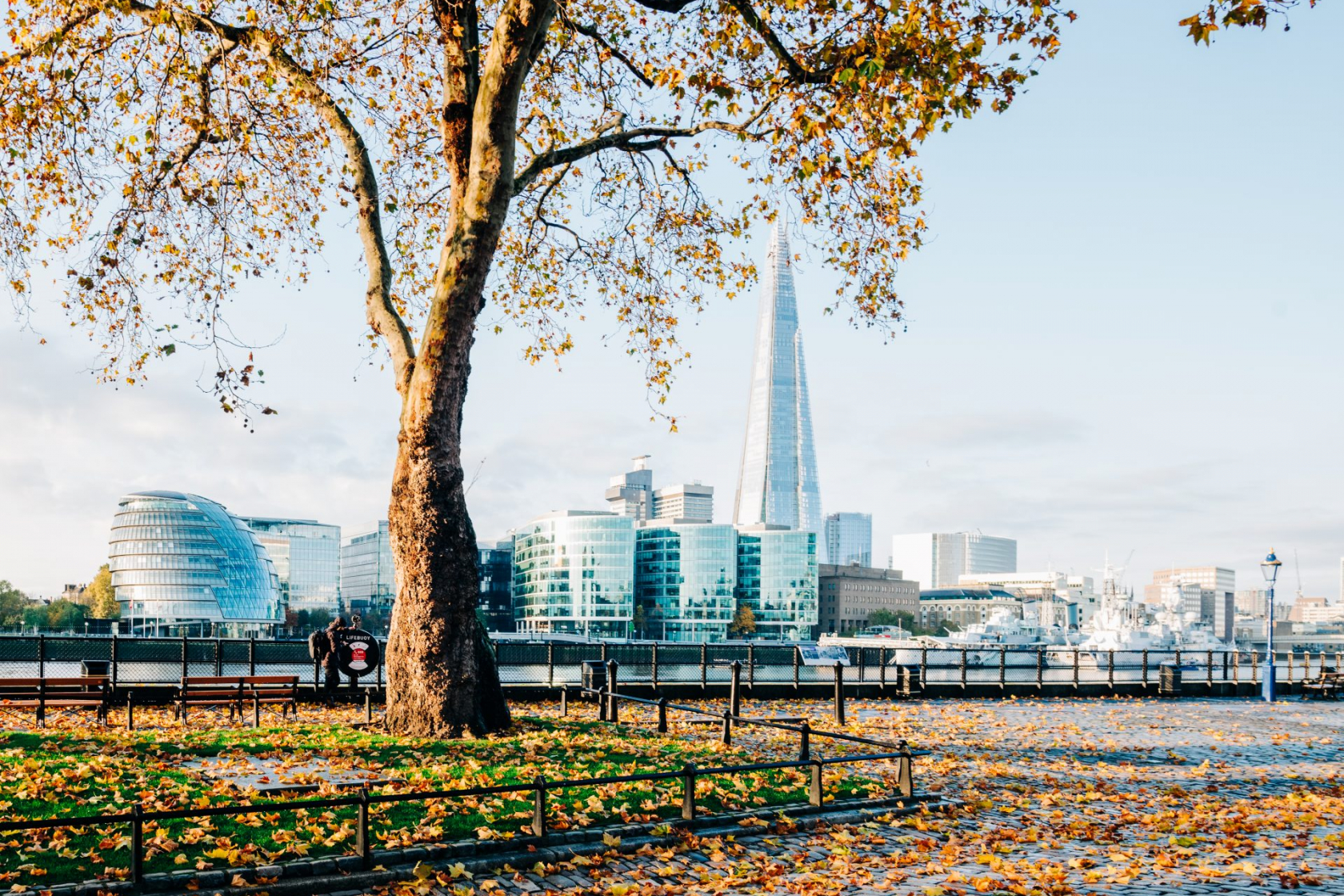As autumn approaches and the weather changes, you might find yourself feeling a bit uneasy. Here, an expert explains why – and what you can do to help yourself navigate this strange period.
As if the darker evenings weren’t enough, the weather we’ve experienced over the last couple of weeks has been a firm reminder that autumn has arrived. From pouring rain to crashing thunder, it’s a stark contrast to the hot, sunny days we experienced throughout the summer months.
For those people who hate hot weather, or simply love autumn and its various associations, this sudden change has no doubt come as a welcome surprise. But for many people, this transition between the seasons has been far from comforting – in fact, it’s felt quite unsettling.
This sense of uneasiness surrounding the arrival of autumn is something I’ve encountered during numerous conversations over the last couple of weeks. From conversations with colleagues in the kitchen at work to discussions with friends in the pub, the same sense of dread has come up time and time again, with people reporting symptoms such as low mood, fatigue and anxiety.
So, why does the changing of the seasons have the power to make us feel so out of sorts? According to Navit Schechter, a CBT therapist and founder of the coaching platform Conscious and Calm, it’s down to a number of factors – the first of which is the way we think about the seasons.
While we might expect summer to be fun and full of opportunity, there’s a tendency to see autumn as a darker, more subdued period. And although both of these are generalisations, these underlying beliefs can influence the way we feel as we transition between the two, Schechter explains.
“If the transition from summer to autumn has made you feel off or on edge, it may be due to where your attention has [been] focused,” she explains. “If the season change acts as a reminder of everything that you didn’t get a chance to do, or feelings of guilt that you didn’t ‘make the most of the summer’ before autumn, then it’s understandable that you might feel regretful or even anxious as a result.”

For people who hate colder weather or struggle with seasonal affective disorder, the seasonal transition can also be a reminder of what’s to come, Schechter adds.
“If you don’t tend to enjoy the cold as much as you do other times of the year, this could cause you to feel low or on edge as the season changes, too,” she says.
“Many people are affected by the lack of sunlight in the colder months, and as we move from summer to autumn, concerns about the shorter days may become more common.
“It’s believed that less sunlight can affect the production of serotonin and melatonin in some people, which can cause difficulties with sleep and mood [seasonal affective disorder]. If you’re dreading this shift as we head towards autumn and winter, it can make you feel off and on edge.”
The unique situation we’re facing this year could be amplifying these feelings, too. From the cost of living crisis and rising energy bills to fears that coronavirus cases could rise again, this autumn and winter present a particularly challenging period for us all.
Of course, there are a few things we can do to change the situation we’re facing – and identifying what’s causing your unease may not do much to make you feel better. However, if you’re looking for a way to feel more in control, then Schechter recommends trying some simple techniques.
“If you’ve recognised that you’re dreading the change in seasons and noticed that your thoughts have run away with themselves – into the future and what the coming months may be like for you – it may be helpful to bring your attention back to the present moment,” Schechter suggests.
“Living in the moment, and focusing on what’s happening in the here and now can help you feel calmer and more grounded. The future will happen whether we want it to or not – and focusing on the present can be a great antidote to that.”

Challenging your perspective of autumn can also help you to feel less anxious, Schechter adds. “Focusing not only on the things that you’re feeling apprehensive about but also the benefits of the coming months can help to put things into perspective,” she says.
“It may be true that the days are getting shorter, but focusing on how you make the most of the longer nights – making your living room cosy, using the extra time at home to catch up with long-distance friends by phone or warm soup and a glass of red wine by the fire – can help.”
Finally, ticking off the basics can also do you a world of good. Getting some exercise in or talking to a friend probably won’t make you feel 100% better – but it’ll ensure you’re better equipped to face whatever challenges you’re navigating this autumn.
“Even though it might feel hard to do so, making sure that you get some time outdoors and in nature – doing some light exercise, yoga, meditation, eating nutritious meals and making sure that you treat yourself with the support and compassion you’d show to others can all help,” Schechter says.
“We can’t always control what’s happening around us, but we can control how we support ourselves through the more challenging times.”
If one thing’s for sure, the arrival of autumn is a daunting prospect, and you’re not alone if you’re feeling worried about that. But as we navigate this period of uncertainty, there are things we can do to make ourselves and those around us feel better, no matter how small an impact they may have.
If you, or someone you know, is struggling with their mental health, you can find support and resources on the mental health charity Mind’s website and NHS Every Mind Matters or access the NHS’s list of mental health helplines and services.
If you are struggling with your mental health, you can also ask your GP for a referral to NHS Talking Therapies, or you can self-refer.
For confidential support, you can also call the Samaritans in the UK on 116 123 or email [email protected]. In a crisis, call 999.
Images: Getty
Source: Read Full Article



